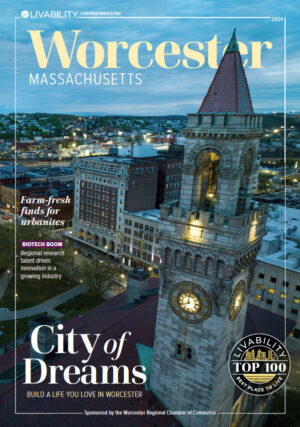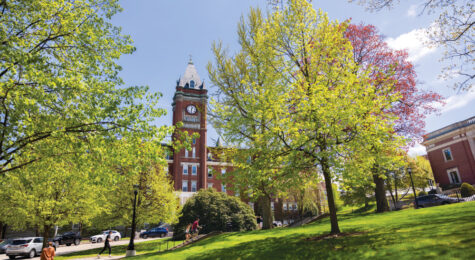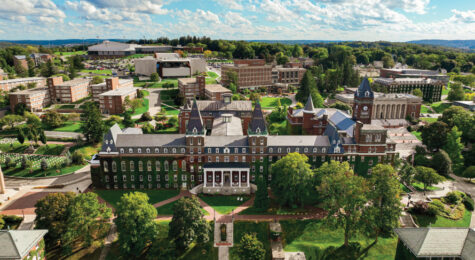Worcester’s Food Hub Keeps Food Fresh and Local for All
The Food Hub’s endeavors nourish more than just the physical.
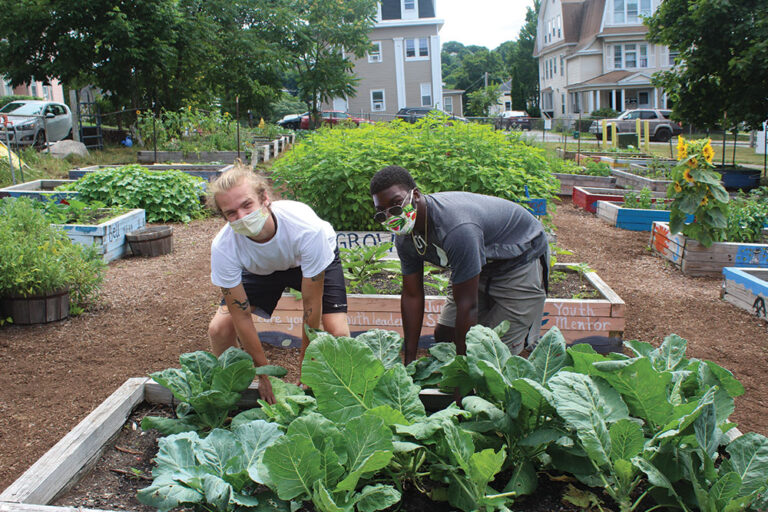
Ensuring residents have access to healthy, fresh food is a high priority in Worcester. The region has an initiative that helps provide people with food and works with entrepreneurs to launch their food-related businesses.
Worcester County has more than 1,560 farms, one-fifth of Massachusetts’ total, making it the state’s most agricultural county. As a result, locally and regionally sourced produce and products are synonymous with the county.
86 food-related businesses
have been supported by the Food Hub to date
With the help of the Worcester Regional Food Hub, local farmers can aggregate their crops to farmers’ markets and buyers, making fresh food readily available to Worcester residents.
While it might sound like community-supported agriculture, the Food Hub’s formula is designed not to compete with CSAs (Community Supported Agriculture programs).
“What we do is a complement to CSAs and the other work of area farmers,” says Shon Rainford, the Food Hub’s director. “Our retail food boxes have greatly assisted our farmers and food producers since they began in March 2020 as a reaction to the changing circumstances of the pandemic.”
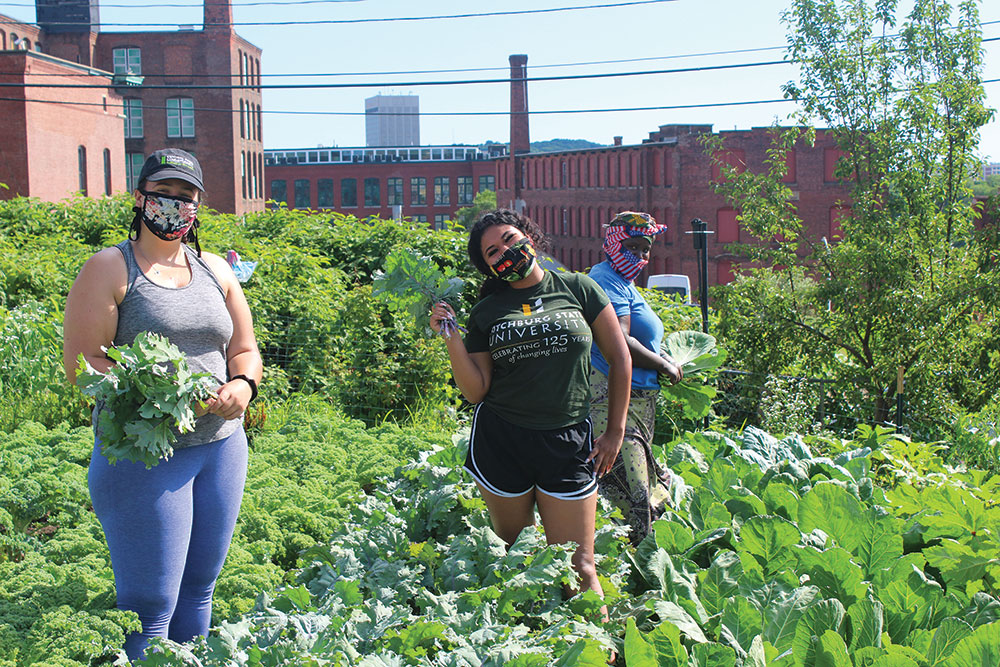
The Worcester Regional Food Hub was founded in 2015 by the Regional Environmental Council, the Worcester County Food Bank and the Worcester Regional Chamber of Commerce, with funding from the Health Foundation of Central Massachusetts.
The Food Hub pivoted its work throughout the 2020 pandemic, getting food into the hands of spaces that needed it, including Worcester residents, health care facilities, shops and restaurants.

Supporting the Community
The Food Hub also provides clean, affordable and commercial-grade kitchen rentals to food-based businesses. Its well-known incubator program also helps launch new local food brands.
Incubator participants gain access to professional kitchen equipment while also receiving business planning and guidance.
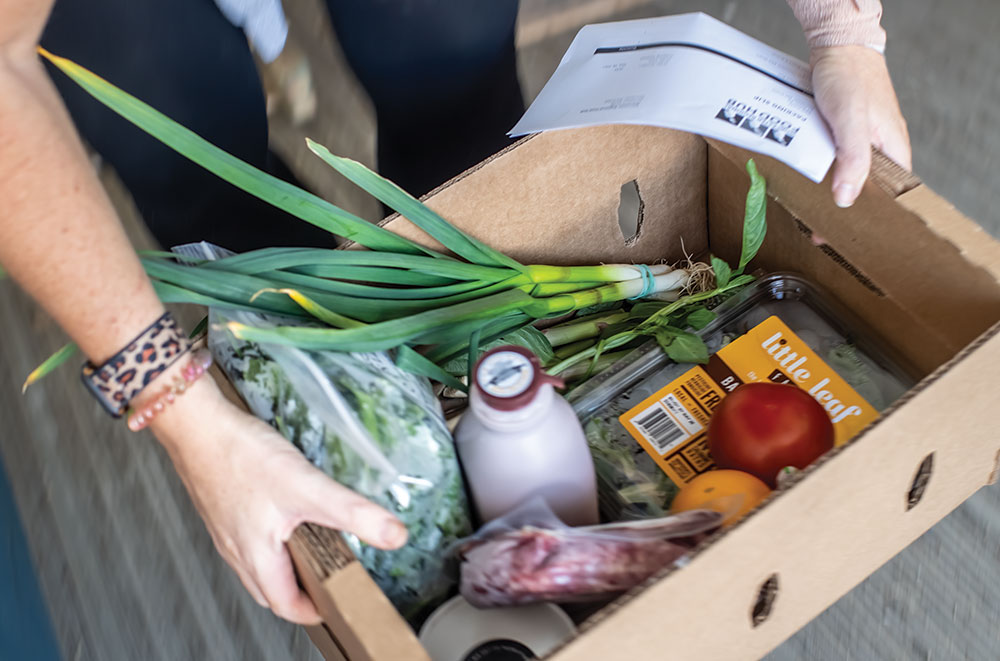
The Food Hub further feeds this civic ecosystem through its partnerships, including YouthGROW, a youth-driven urban agriculture platform.
1,560 farms + in Worcester County
Which is roughly one-fifth of Massachusetts’ total number of farms
“Before the pandemic, we worked with the Food Hub with our youth to develop, produce and batch our hot sauce called Drop It Like It’s Hot Sauce in the commercial kitchen,” says Stacie Brimmage, YouthGROW coordinator. “We hope to bring the sauce back in fall 2021 or in 2022 and work with them to see if it is viable to scale up.”
Brimmage is also a graduate of ServSafe, a Food Hub food service certification available to operators and entrepreneurs.
To date, the Food Hub has supported 86 food-related businesses, 46 farms and food producers, and 48 institutional buyers throughout the region. Local brands like Stretch’s Pickles, Nutty Bird Granola, Minuteman Kettle Corn, Bali Marle, AZ Nordic Kvass and Urban Spice World have all passed through the Food Hub’s kitchen.
Expanding Their Reach
After such a challenging year for everyone, what’s next for the Food Hub is undoubtedly top of mind. According to Rainford, increasing the Food Hub’s impact is the primary goal.
“The Food Hub is currently looking to become financially sustainable while looking to expand to and consolidate operations at Worcester Union Station’s underutilized lower level,” Rainford says. “Currently, the Food Hub operates its commercial kitchen out of Greendale People’s Church. Aggregation services for local products come out of a nearby rented cold storage facility.”
Worcester, MA
This digital edition of the Worcester, MA is sponsored by Worcester Regional Chamber of Commerce.

